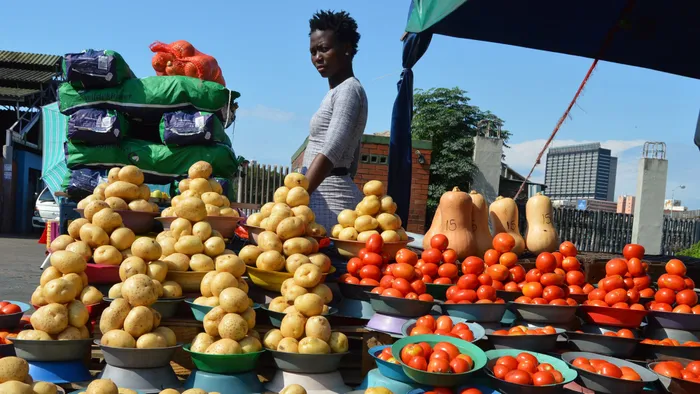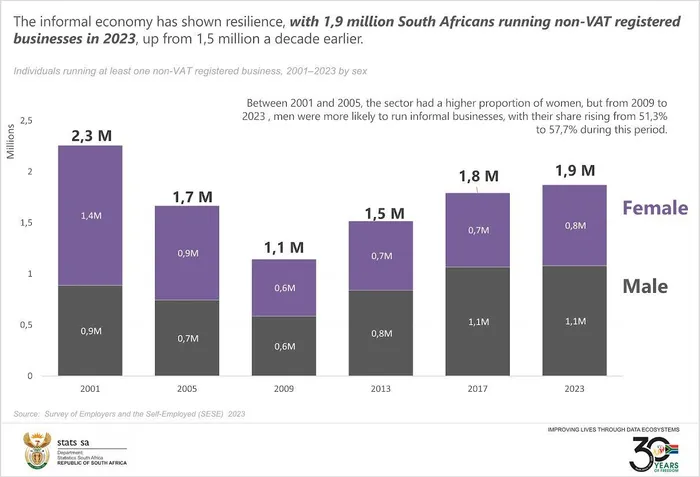South Africa’s informal economy: From street vendors to home-based businesses

South Africa’s informal economy – from street vendors, home-based businesses, and unregistered enterprises – employs 19.5% of the workforce, sustaining households, fuelling local economies, and showcasing the nation’s entrepreneurial grit, according to a new Statistics South Africa research paper.
Image: Tumi Pakkies, Independent Newspapers
South Africa’s informal economy – from street vendors, home-based businesses, and unregistered enterprises – employs 19.5% of the workforce, sustaining households, fuelling local economies, and showcasing the nation’s entrepreneurial grit, according to a new Statistics South Africa research paper.
The latest Quarterly Labour Force Survey shows informal enterprises provided jobs for nearly a fifth of all employed South Africans in the fourth quarter of 2023, cementing the sector’s status as “the second-largest source of jobs after the formal sector”.
Unemployment in the fourth quarter of last year was at 31.9% based on the formal sector figure, which excludes those who have given up seeking work.
Despite economic headwinds, 1.9 million South Africans ran non-VAT registered businesses in 2023, up from 1.5 million a decade earlier.

South Africa’s informal economy employs 19.5% of the workforce, according to a new Stats SA research paper. This includes street vendors, home-based businesses, and unregistered enterprises that play a vital role in sustaining households, supporting local economies, and reflecting the country’s entrepreneurial spirit.
Image: Stats SA
“The informal sector plays a crucial yet often overlooked role in the country’s economy, providing jobs and incomes for millions who struggle to find opportunities in the formal labour market,” said Statistics South Africa. Trade’s dominance has waned, while services, finance, construction, transport, and agriculture have grown, reflecting shifting economic activity.
Unemployment remains the primary driver for starting an informal business, with 58.9% of women citing joblessness as their reason for entering informal work in 2023, although this figure is from 64.1% in 2001, it remains persistent.
In addition, the informal sector is key for those with limited formal education as many of these entities are run by people who have not matriculated, Statistics South Africa noted.
Black Africans still dominate the sector, comprising 88.9% of owners in 2023, though this marks a decline from 90.8% in 2017. Most businesses lack formal education: most owners have not completed matric.
Gauteng hosts almost a third of informal enterprises, followed by KwaZulu-Natal and Limpopo. “However, five out of nine provinces have seen a decline in informal businesses since 2001,” Statistics South Africa said.
However, the sector faces challenges as it grows, such as limited access to funding and licensing issues, which the statistical body said, “remain pressing concerns”.
Regulation remains an issue for informal businesses, with most operating without official permits, said Statistics South Africa. This comes even as the proportion of owners with licences rose from 7.3% to 10.7% in 2023.
Other hurdles include marketing and securing space to operate, with a third of informal businesses needing advertising support as of 2023.
IOL
